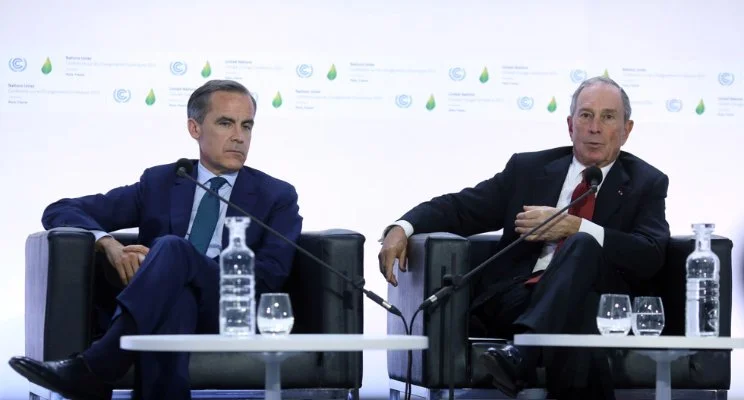UK Plc Leads On Board Oversight Of Climate Risk- Report
British business appears to be leading the way on integrating the risks and opportunities posed by climate change into mainstream financial disclosure. Meanwhile, the European Commission said recently that it intends to put forward a legislative proposal by the end of June that makes it clear that institutional investors and asset managers have a duty to consider sustainability when they make investments.
Are listed businesses and institutional investors - pushed on by governments - coming to grips with the realities of climate risk ? For those who believe it's a critical issue, it isn't quite time to celebrate.
While companies in the UK, France and Germany appear to be leading the way in disclosing information, there is still little "incentive" for board directors everywhere to pay attention to climate risk as an essential component of corporate governance and business strategy, research just out suggests.
A survey across 14 countries and 11 sectors reveals that not only does the United Kingdom have the highest proportion of companies with board oversight on climate change (96%), but at 97%, it also has the highest proportion of companies disclosing Scope 1 and 2 emissions.
The survey and report from CDP, the global not-for-profit covering environmental impact, and the Climate Disclosure Standards Board, an international consortium of business and environmental NGOs, covers 1,681 companies that disclose to CDP. It looks at whether businesses are prepared for recommendations made by the Financial Stability Board's Task Force on Climate-Related Disclosure (TCFD) and at whether there are any significant variations by geography or sector.
I covered TCFD on Forbes when it was first set up. As its Chairman, Michael Bloomberg, said at the time: "Climate change is not only an environmental problem, but a business one as well. We need business leaders to join us to help spread these recommendations across their industries in order to help make markets more efficient and economies more stable, resilient, and sustainable."
Germany has the highest proportion of companies providing incentives to the board for the management of climate change issues (29%), with France at second highest (25%). But interestingly, it seems the UK is doing even better without the incentives.
By 'incentives" CDP means linking responsibility for climate action to remuneration at board or management team level. Just 12% of the companies it surveyed explicitly linked incentives such as bonuses or a greater chance of promotion to climate-related targets.
The partnership between Mr Bloomberg and Mark Carney, Governor of the Bank of England and today the extended Chair of the FSB, is a powerful one. The FSB makes recommendations to the G20 group of nations.
Mark Carney, Chair Financial Stability Board (FSB) L with Michael Bloomberg, Chair FSB TCFD Source: FSB TCFD, London, UK
When banks and insurers supported the FSB TCFD's recommendations in June last year, it found itself in a position of some strength. The UK government officially endorsed the TCFD Guidance in September 2017 "and encouraged all listed companies to integrate the risks and opportunities posed by climate change into mainstream financial disclosures", says CDP.
China - which has taken a world lead in this area, as I also covered on Forbes - is expected to see new mandatory reporting policies in 2018. But currently, companies from China, and the healthcare and financial sectors are lagging behind in the four thematic areas of disclosure highlighted by the TCFD: Governance, Risk Management, Metrics and Targets.
Despite the hype on climate, it seems that China has the lowest percentage of companies disclosing GHG emissions across Scope 1, 2 and 3. It also has the lowest proportion (24%) identifying reputation and/or changing consumer behaviour as a risk driver for business, according to the report.
While a changing regulatory regime is improving corporate climate disclosure, the report reveals that "the gap between leaders and laggards is widening." There is a fundamental gap between the ways in which companies identify climate-related risks and opportunities and how they are preparing to tackle them, it says.
"2018 is the year when companies need to step up climate action as we approach a tipping point. Fundamental to this is driving board level engagement with climate risk throughout the organisation" said Jane Stevenson, Task Force Engagement Director at CDP.
The vast majority of companies surveyed acknowledge that climate change poses financial risks for their business. Some 83% of businesses recognise the physical risks, and 88% identify policy changes/new regulations as the main risks of transitioning to a low-carbon economy, according to the research.
An address by Professor Jonathan Stern of the Oxford Institute for Energy Studies to a conference in London last week (covered here on Board Talk in a post on energy issues that should be ringing danger bells in boardrooms) noted that concerns about carbon are far from being only centered around Europe. "If you talk to policy makers, the only issue that matters in energy production is carbon" he said.
Yet the research reveals that only 35% of companies in the UK will be using carbon pricing by 2019.
"It is clear that the management of environmental issues can no longer be the sole responsibility of sustainability teams: it needs to be a priority area for companies' boards to ensure it is truly embedded into their strategic priorities" said Simon Messenger, Managing Director, CDSB.
North America disappoints on multiple fronts, for those with a mission for business to take climate risk seriously. "On average, only 68% of companies in Canada and the USA have board-level oversight, compared to over 90% of companies in France, Germany and the UK" says the report.
"The gap between North American and European companies widens further when looking at the number of companies providing monetary or non-monetary incentives to the board: while i in 4 European companies do so, only 1 in 25 in North America do" it says.







